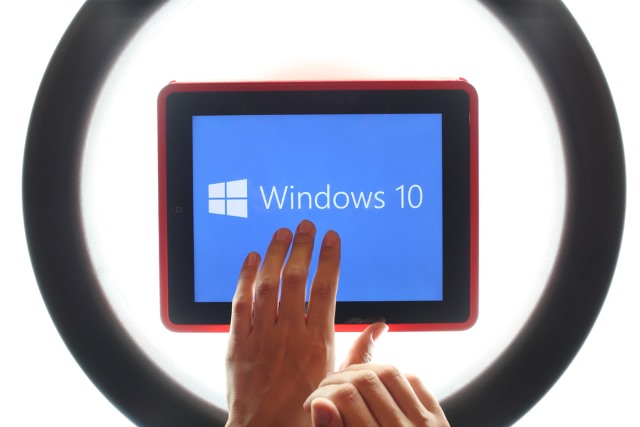
Windows 10 growth slows as OS X makes market share gains
The growth of Windows 10 continues, albeit slowly, the latest figures from NetMarketShare show. The statistics for April reveal that, at long last, Windows 7 is no longer installed on the majority of computers, slipping to a 48.79 percent market share. Windows 10 saw slight growth to 14.35 percent (up from 14.15 percent), and Windows XP dropped below 9.66 percent.
Usage of Windows 8.x stayed largely stable (12.11 percent compared to 12.01 percent in March), but the balance between Windows 8 and Windows 8.1 (9.16 percent down from 9.56 percent) shifted slightly, with the older version seeing slight growth (2.95 percent, up from 2.45 percent). OS X's market share increased slightly, and Linux dropped a little.
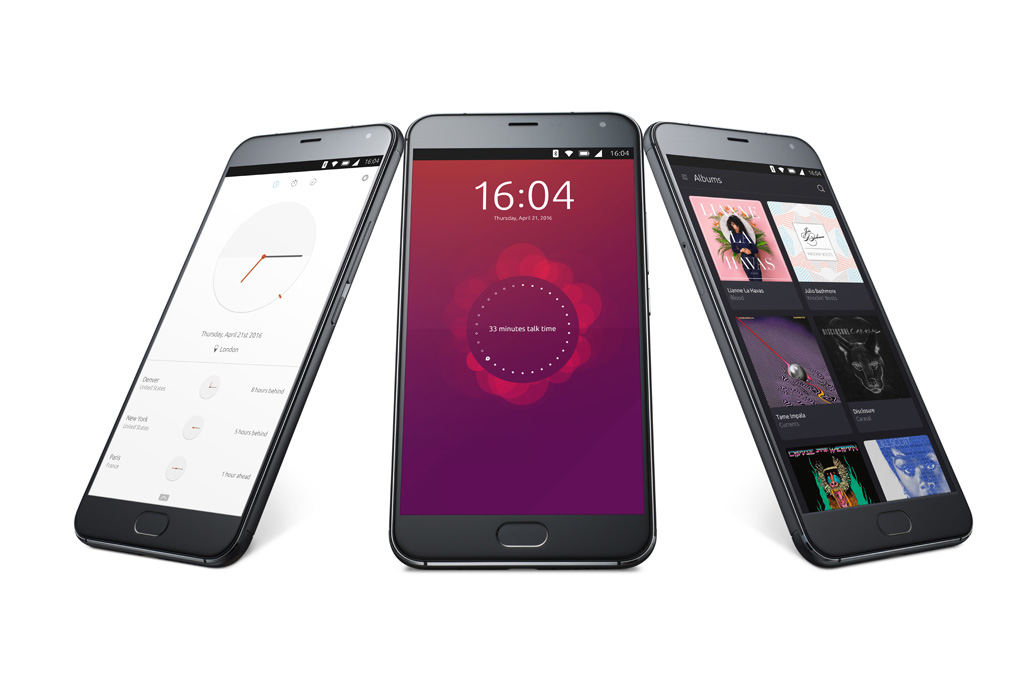
Meizu PRO 5 Ubuntu Edition smartphone finally available -- Linux fans, buy it now!
Android is a Linux-based operating system, true, but for many, it is sort of a bastardized use of the kernel. Understandably, Nexus devices aside, it can feel very un-Linux-like to have devices with locked bootloaders that cannot be easily updated. Some Linux fans have been clamoring for an alternative.
Ubuntu is that alternative. Canonical's operating system can scale well, from desktop to tablet to smartphone. Best of all, you can buy an unlocked device that requires no carrier approval for OS updates. Today, the most exciting phone to run the operating system -- Meizu Pro 5 Ubuntu Edition -- goes on sale.

Lionsgate to distribute movies on Valve's Steam platform for Windows, Mac, and Linux
If you play PC games, you surely know of Steam. If you aren't such a gamer, please know that it is a video game delivery and management platform for Windows, Mac, and Linux. It is a great way to purchase games, and unlike using Microsoft's Windows Store, games can take full advantage of your hardware.
Valve is not satisfied with Steam only being for games, you see, and the company is focusing on other media too. Today, Valve announces that Lionsgate movies will be distributed through its delivery solution. More than 100 films, including the wildly popular Hunger Games series, will be available on Steam for Windows, Mac, and Linux.
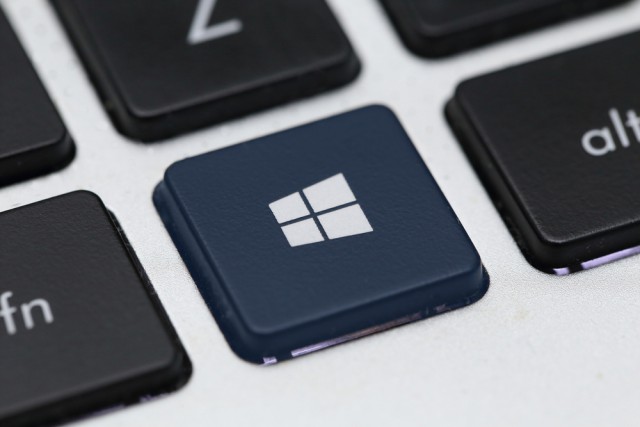
Microsoft reveals all about Windows 10's Linux subsystem
The arrival of Bash in Windows 10 took many people by surprise, but it opens up a number of opportunities including the ability to run GUI Linux apps. But it's about much more than just that. Microsoft wants people who are confused about the arrival of (deep breath...) Bash on Ubuntu on Windows to know of the potential, and has produced an explainer about the Windows Subsystem for Linux.
Microsoft's Deepu Thomas says that the subsystem was created by the Microsoft Windows Kernel team, and goes on to explain that this is much more than an interpretation layer or virtual machine. In fact, the Windows Subsystem for Linux was born from work carried out years ago for the NT kernel that was meant to bring POSIX and OS/2 support.

Even Microsoft's biggest fan doesn't want Windows 10 Mobile
Windows Phone has been dead for some time now. I knew it. The world knew it. Dogs knew it. The only people that were seemingly unaware were those that pledged allegiance to Microsoft. You know who they are -- those men and women that some call "fanboys".
Even the journalism community has them. Folks like Paul Thurrott and Mary Jo Foley are unapologetic fans of Microsoft. While Thurrott has long since abandoned the horrific Windows Phone platform, Foley has been one of the few holdouts. Today, she announces that she -- Microsoft's biggest fan -- is choosing the Linux-based Android instead. If this doesn't signal the death of Windows Phone/Windows 10 Mobile, I don't know what does.

Canonical releasing Ubuntu Linux 16.04 LTS 'Xenial Xerus' tomorrow -- will you download it?
Ubuntu is one of the best -- if not the best -- desktop Linux-based operating systems. Many people, including me, trust it for their computing needs every day. Best of all, Canonical releases special LTS versions every two years, offering a super-long five years of support.
Tomorrow, the latest such LTS version, 16.04, will see its official release. I've been running pre-release versions of this operating system for a while now, and it has been brilliantly stable. Tomorrow's release will be the best Ubuntu ever, featuring things like new snap packages, CephFS, and ZFS-on-Linux.

Microsoft Edge web browser gets plugin-free Skype, and that is great news for Linux users
As a Linux user, I have stopped using Skype recently. What was once a great experience on Ubuntu, Fedora, and other such operating systems, has been seemingly abandoned by Microsoft. Skype on Linux is barely usable nowadays, as the client has not seen an update in quite a while. This is rather tragic, as it is otherwise a great service on other platforms, such as Android, iOS, and of course, Windows.
Users of Windows 10 that use the Edge web browser are getting a cool update this month, as Microsoft is rolling out plugin-free Skype support. While that is cool, the really intriguing aspect is the potential for Linux users, as it should lead to similar functionality on browsers like Google Chrome and Firefox.

Microsoft releases open source CentOS-based 'Linux Data Science Virtual Machine' for Azure
Microsoft is both an open source and Linux champion nowadays -- on the surface at least (pun intended). In other words, while it does embrace those things, we may not know the motivation of the Windows-maker regarding them. Regardless, Linux and open source are now important to the Redmond company.
Today, Microsoft announces a CentOS-based VM image for Azure called 'Linux Data Science Virtual Machine'. The VM has pre-installed tools such as Anaconda Python Distribution, Computational Network Toolkit, and Microsoft R Open. It focuses on machine learning and analytics, making it a great choice for data scientists.
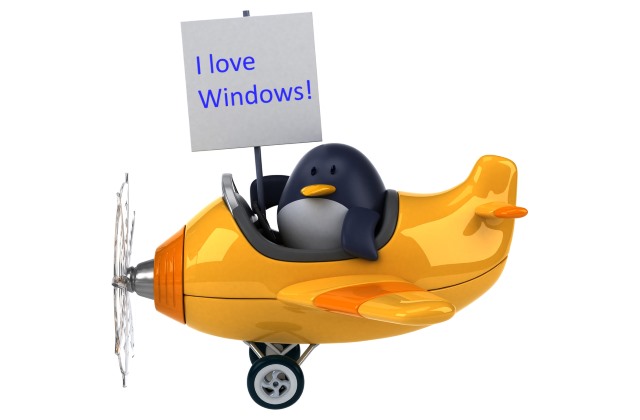
How to run GUI Linux apps from Bash in Windows 10
Linux apps running in Windows 10? What gives?! As if the arrival of Bash on Ubuntu on Windows 10 wasn't enough, people have been quick to investigate the capabilities and limitation of Microsoft's embracing of the Linux command line.
Some commenters on our how-to guide asked what the point is. How about being able to run Linux apps in Windows without having to resort to using a virtual machine? It can be done. Here's how.

How to run Bash on Ubuntu on Windows 10 Anniversary Update or Preview Build 14316
Microsoft has been showing Linux a lot of love recently, and at Build 2016 the company announced that the Bash shell was coming to Windows 10. It’s a feature that will make an appearance in the upcoming Windows 10 Anniversary Update (due for release in July), but it's something that Windows Insiders on the Fast Ring already have access to in Build 14316 right now.
If you have installed this build, you'd be forgiven for not being able to find Bash however hard you look; there are hoops you have to jump through. So if you like the idea of accessing the Linux command line in Windows 10, there are a few steps for you to follow, starting off by enabling Developer Mode.

'Mumblehard' malware turns thousands of Linux servers into spam botnet -- ESET shuts it down
Linux-based operating systems are rock solid -- reliable and secure -- but not infallible. The Mumblehard malware, for instance, targets servers running the open source kernel, installing a backdoor, and then turning them into part of a powerful spam-focused botnet. Surprisingly, Mumblehard was rather widespread, infecting 4,000 Linux-powered servers.
Of course, had administrators patched the systems appropriately, there is a good chance that some of them would have avoided infection. I say this, because ESET found that some machines were infected through known exploits, in things like WordPress. Thankfully, ESET successfully terminated the botnet on February 29th, 2016 by taking control of the home IP.

Linux can still beat Windows in the desktop war, and Linus Torvalds is 'working on it'
About a year ago, I declared Windows 10 was "the final nail in the coffin for the Linux desktop". What I meant by this was not that Linux on the desktop was really dead, but that the Linux community had failed to capitalize on the negative sentiment towards Windows 8x. What I didn't expect at the time, however, was Microsoft's privacy faux pas with Windows 10. While there are more than a quarter billion installs of the latest operating system, plenty of folks have serious concerns about spying.
Maybe Linux has a chance on the desktop after all. Ubuntu is being integrated into Windows 10, and Android seems to be headed towards the desktop. In other words, Linux is making significant moves. Heck, even Linus Torvalds is prepared to keep fighting the good fight, and he declares that he is still "working on it".

Get a Red Hat Enterprise Linux license totally free -- here's how
While many people use the old cliché that nothing in life is free, that isn't always true. Are there often strings attached? Absolutely. With Gmail, Google combs through your communications for targeted advertising. Microsoft's Windows 10 is a free upgrade for many, but it has more strings than a gross of violins -- from a privacy standpoint, that is.
In the world of open source, however, free sometimes really means free. Today, Red Hat -- fresh from celebrating a historic $2 billion in annual revenue -- releases a developer-focused gift to the world. The Red Hat Enterprise Linux Developer Suite is totally free, including a RHEL license and valuable developer tools, like the JBoss Middleware portfolio. This is through the Red Hat Developer Program.

Big Windows 10 Anniversary Update coming this summer
At Build 2016, Microsoft revealed that Windows 10 has now been installed on more than a quarter of a billion devices. But Build is about looking forward, not to the past or present. Windows 10 may have been lapped up by hundreds of millions of users, but there is already demand for the next big update -- and it's just on the horizon in the form of Windows 10 Anniversary Update.
Due for release late summer -- although no date has been given at this stage -- Windows 10 Anniversary Update is described as an "interim release", but one that will feature "significant new features". Timed to coincide with Windows 10's first anniversary, the update will enable developers to make use of hundreds of new features in an updated API set.
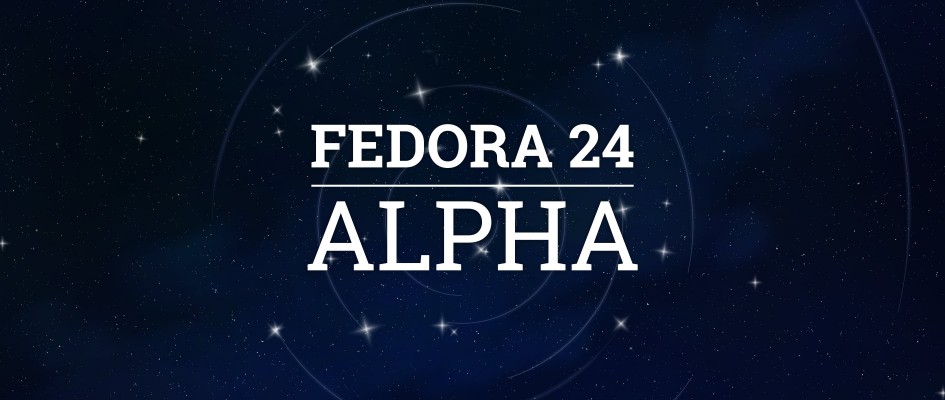
Fedora 24 Alpha Linux distribution now available with GNOME 3.20
If you are a big GNOME fan -- like me -- then there is one distribution you must try -- Fedora. The Linux-based operating system -- the same that Linus Torvalds uses -- is a great way to have a vanilla GNOME experience. Desktop environment aside, it is also both stable and fairly cutting-edge, offering modern packages and kernels.
Today, Fedora 24 reaches public Alpha -- you can download it now. While using an Alpha operating system on your main computer is probably not a great idea, there is one specific thing that makes such an early version very attractive -- GNOME 3.20. While the ISO does not contain the final version of 3.20, you can update to final immediately after installation by using either Software or DNF in terminal. Huzzah!
